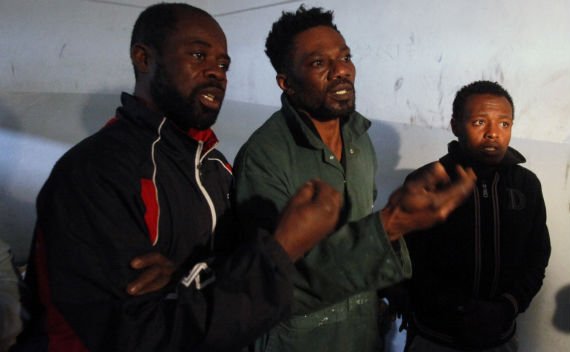Qaddafi’s Sub-Saharan Mercenaries
More on:

Numerous, credible reports suggest Muammar Qaddafi has employed sub-Saharan African mercenaries against his own people in order to hang on to power. Some commentators even say that his mercenaries will fire on civilians at Qaddafi’s behest, in contrast to Egyptian soldiers who refused to kill their fellow countrymen to protect then-president Hosni Mubarak.
Qaddafi has long had sub-Saharan African ambitions, employing grandiose pan-African rhetoric and promoting national unification schemes that never materialized. He has also meddled in the internal affairs of his weak sub-Saharan neighbors. Qaddafi even took on Nigeria, the West African hegemon. When Nigeria was experiencing religious and sectarian conflict last year, he publicly advocated the division of the country in two. He has also paid a significant share of the African Union’s bills.
Qaddafi’s use of mercenaries as his personal security force demonstrates the darker side of his pan-African ambitions. Apparently, Qaddafi built up his personal African mercenary corps while he starved the regular Libyan military for funds. However, even if Qaddafi is able to hang on to power, his use of mercenaries will likely greatly diminish his stature among sub-Saharan African leaders. Qaddafi’s private military force also highlights the impotence of the 1977 Anti-Mercenary Convention, a regional treaty from the Organization of African Unity (the African Union’s precursor).
Qaddafi’s use of mercenaries may also provoke an ugly reaction to Libya’s large sub-Saharan migrant worker population, most of which are drawn to the availability of jobs in the oil-rich, under-populated country. Should such a reaction materialize, I suspect many sub-Saharan Africans will try to flee the country, creating another humanitarian challenge for neighboring African governments and the international community.
More on:
 Online Store
Online Store
